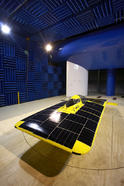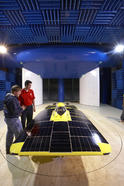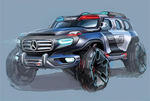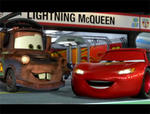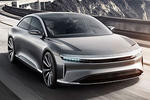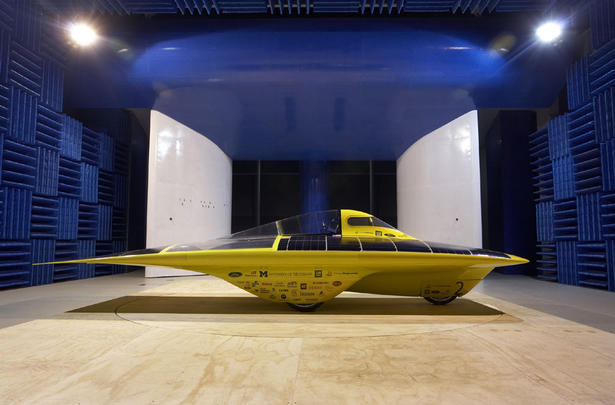
GM announced that it will support four of the teams that will enter this year's Panasonic World Solar Challenge (WSC) across Australia. The teams the GM will support are:
- University of Michigan’s solar car Continuum
- Annesley College all-female team will enter a Holden Viva Hatch which has been converted into a petrol/electric hybrid
- Team Ethanol will drive the Saab BioPower
- TAFE SA with the RAA Kelly solar car
GM Press Release:
GM Gets Behind World Solar Challenge Entrants
From futuristic solar vehicles to a petrol/electric hybrid and an ethanol production car, four of this year’s innovative entrants in the Panasonic World Solar Challenge (WSC) will be supported by General Motors on their journey through the heart of Australia.
The WSC is an energy efficiency challenge running over 3,021 kilometres through central Australia
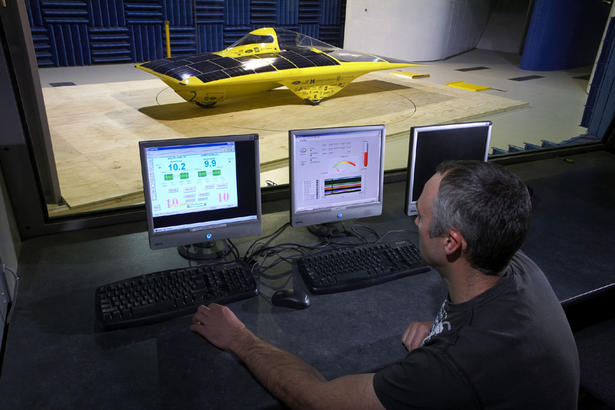
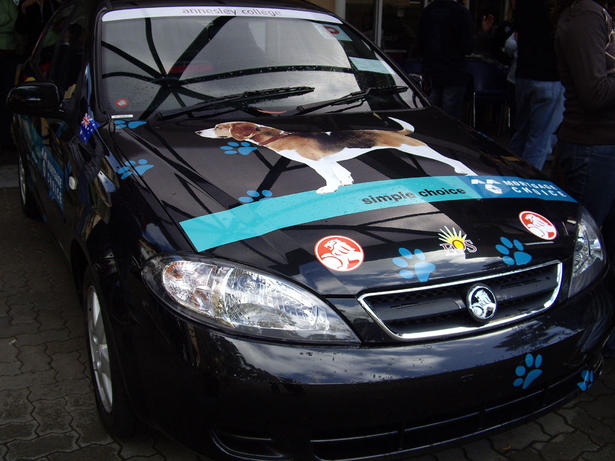
from Darwin to Adelaide. The event runs from 21-28 October 2007 and is designed to showcase research and development in solar energy and other potential fuel sources for future transport needs.
GM has been involved as a sponsor in the World Solar Challenge since the inaugural event in 1987 was won by GM’s Sunraycer.
In the WSC’s elite Challenge class, General Motors is a platinum sponsor of the University of Michigan’s solar car Continuum. This is the ninth-generation entrant from the
North American university which has achieved three third place finishes in this event.
As part of its sponsorship support, staff of the Design PPO shops at GM’s Technical Centre in Michigan helped come up with design and engineering solutions in production of the vehicle moulds. Local GM Holden aerodynamic engineers helped the team undertake wind tunnel testing when the vehicle arrived here in Australia.
Through its Community Support Program, GM Holden is providing assistance to two local entrants: Annesley College’s petrol/electric hybrid in the Greenfleet Prototype class; and TAFE SA’s solar car entry in the Adventure class.
For the all-female team at Annesley College, Holden has provided a Holden Viva Hatch which has been converted by the College into a petrol/electric hybrid. Holden has also provided fuel efficient Holden Rodeo and Captiva diesel models as support vehicles.
TAFE SA’s entrant – RAA Kelly – is a solar car entered in the Adventure class. Holden’s sponsorship is helping the team with event participation costs for the 3,000 kilometre race.
In the Greenfleet Technology class, Australia’s first ethanol production car, Saab BioPower, will be driven by Team Ethanol on E85 fuel (85 per cent ethanol, 15 per cent petrol). The GM Premium Brand has just launched the E85 flex-fuel Saab 9-5 BioPower for sale in Australia. E85 fuel is not currently commercially available in Australia, but BioPower is able to run on petrol until it is.
Saab BioPower is already the best selling environmentally friendly vehicle in its home market of Sweden with ethanol representing one of the most significant near term solutions being introduced by GM as part of its alternative propulsion strategy.
GM globally has adopted a clear three-pronged approach to reduce fuel consumption and CO 2 emissions in the future. In the near-term, GM will continue to refine and improve today’s technology to provide better efficiency and performance whilst also introducing renewable alternative fuel vehicles, such as BioPower.
In the m id-term, GM will focus considerable resources in bringing more electric and hybrid technologies to market and, in the long-term, will continue its efforts to develop and bring to market vehicles powered by hydrogen fuel cells.
GM Holden Director of Innovation Engineering, Richard Marshall, said locally GM Holden was committed to energy diversity and finding alternate propulsion breakthroughs.
“Looking ahead, we think drivers will begin to understand and choose the alternative powertrain solution that suits their transport needs,” Mr Marshall said.
“Where drivers spend most of their time in heavily congested traffic, petrol hybrids may offer the appropriate level of performance with low fuel consumption. For people whose driving habits typically include a mix of inner city, suburban and country driving, diesel vehicles may be more likely to deliver powerful performance and better fuel economy.
“In Australia, most driving falls into this latter category where relatively low density residential suburbs, rapidly spreading coastal fringes and long distances between rural population centres are generally more suitable for diesel powertrains,” said Marshall.
“The World Solar Challenge provides a great opportunity to draw attention to the potential offered by some of these alternative energy sources as the different technologies develop,” he added.

